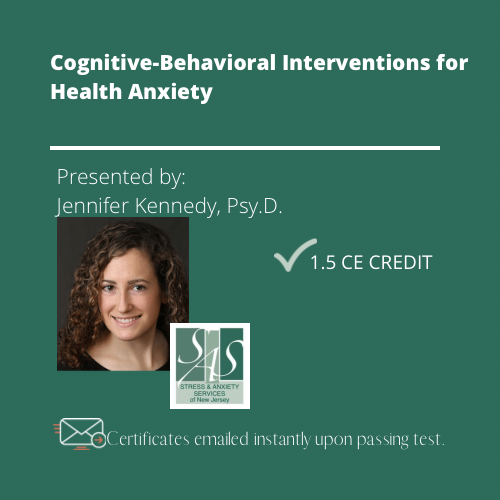Objective 1:
Identify, diagnose, and accurately assess health anxiety, as well as the DSM-5 disorders associated with this disorder.
Objective 2:
Explain the core components of the cognitive-behavioral model of treating health anxiety.
Objective 3:
Identify and apply a variety of cognitive-behavioral interventions that can be used in the individual therapy setting to mitigate symptoms of health anxiety and related disorders.


